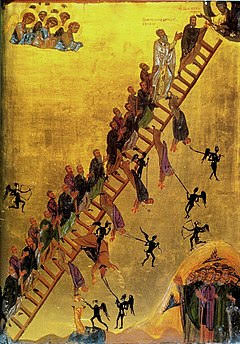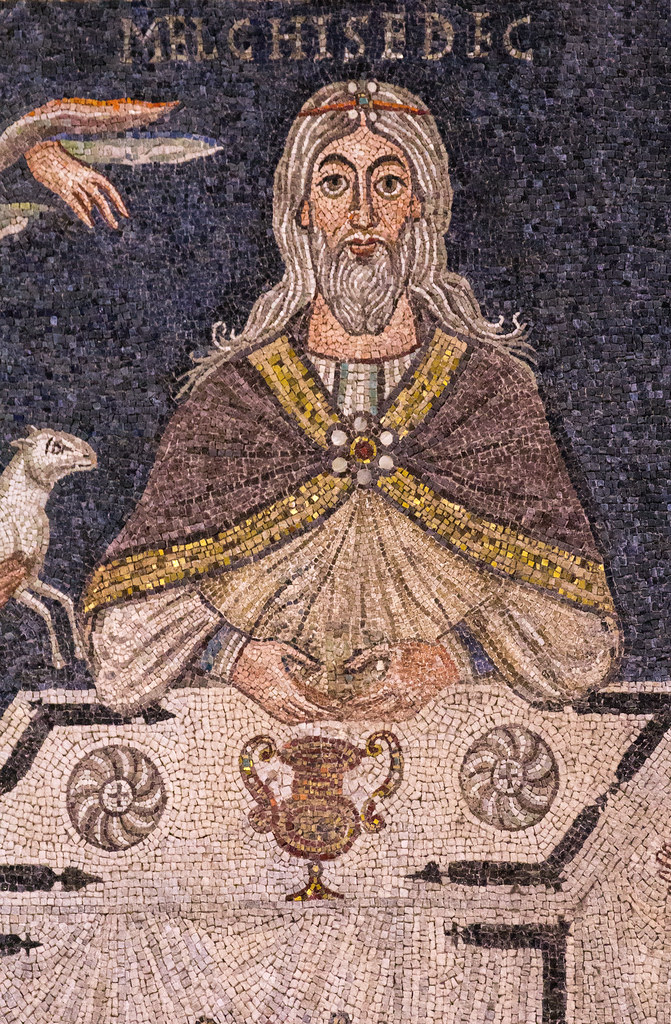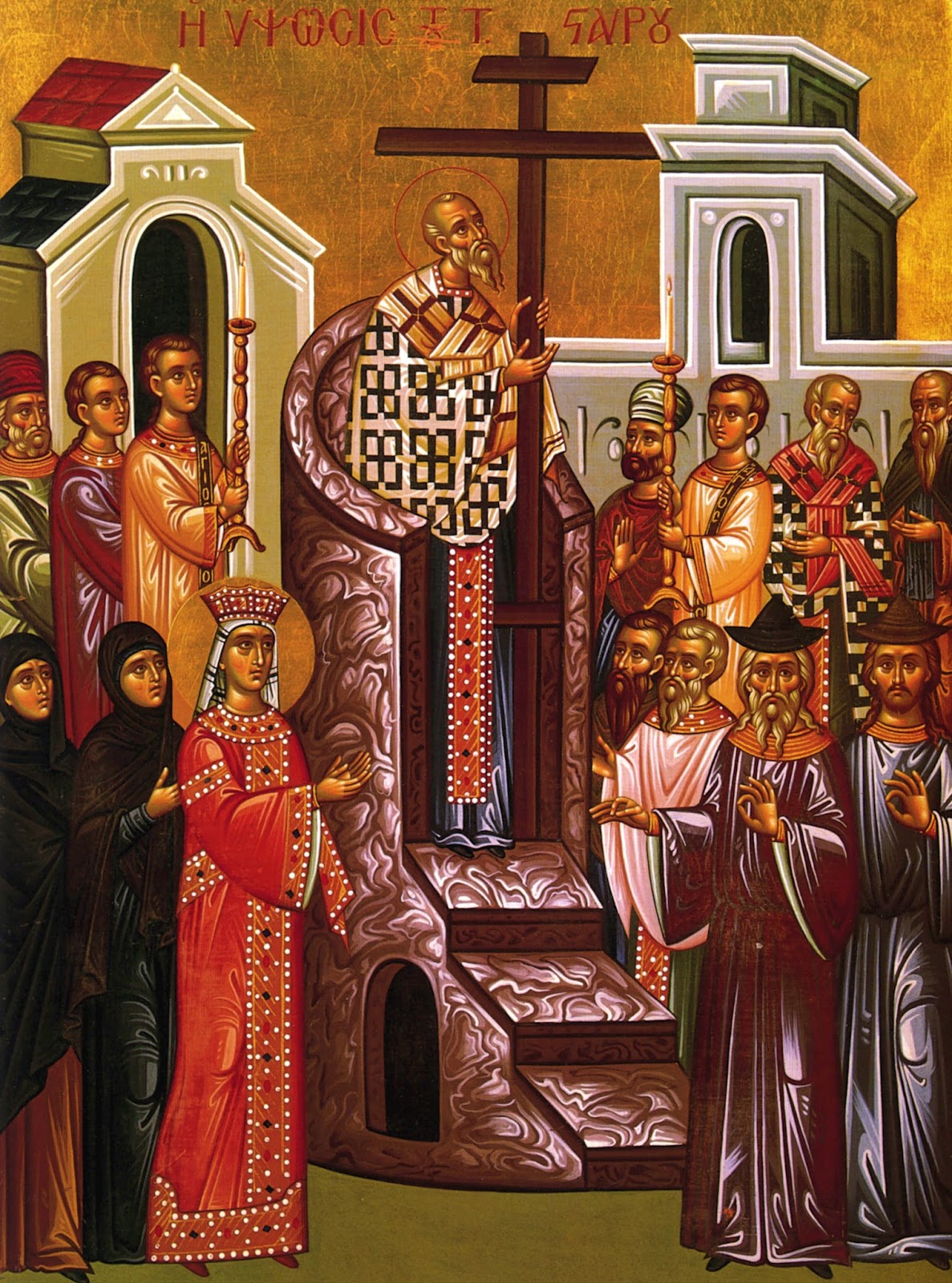Some Historical Background from the Old Testament
For it is written that Abraham had two sons, one by a slave and one by a free woman. But the son of the slave was born according to the flesh, the son of the free woman through promise. Now this is an allegory: these women are two covenants. One is form Mount Sinai, bearing children for slavery; she is Hagar. Now Hagar is Mount Sinai in Arabia; she corresponds to the present Jerusalem, for she is in slavery with her children. But the Jerusalem above is free, and she is our mother. For it is written, “Rejoice O barren one who does not bear; break forth and shout, you who are not in travail; for the children of the desolate one are many more than the children of her that is married.”
Galatians 4: 22-27 (Epistle from Feast of Conception of St. John the Baptist)
On September 23, we celebrate the feast of the Conception of St. John the Baptist. His two parents, Zacharias and Elizabeth, were both advanced in years and unable to have children. Their story is told in the first chapter of the Gospel of Luke.
The Epistle lesson, taken from St. Paul’s Letter to the Galatians, refers to the Old Testament. In the book of Genesis, we read that Abraham and his wife Sarah, were not able to conceive children. In Genesis 16, we read that Sarah (at the time called Sarai) told Abraham (at that time called Abram) that he should be with her maid, Hagar, since she could not give him children. So, Abram went with Hagar and she conceived an illegitimate son, whom she named Ishmael. It was told by an angel that Ishmael “shall be a wild ass of a man, his hand against every man and every man’s hand against him. (Genesis 16:12)
Later, after God made a covenant with Abraham, He promised that Sarah would conceive in her old age. So, now Abraham ended up with two sons, one illegitimate and one the product of his union with Sarah.
Saint Paul refers to these two sons, comparing the two women to two allegories. Hagar represents the Old Covenant, given on Mount Sinai in the Ten Commandments. This covenant gave order, just like the conception by Hagar gave Abram a son. But neither was an ending. Ishmael did not play out to a good ending and neither did the Old Covenant.
A New Covenant came through the Incarnation of Jesus Christ. The New Covenant is perfect and permanent. It has replaced the Old Covenant. Our hope is not found in keeping good order but in the sacrificial love that Christ showed to us. We are descended from Abraham, but not from the line of Ishmael but through the line of Isaac, Jacob, then to David and ultimately to Jesus.
Before the Incarnation of Christ was the birth of His forerunner, John the Baptist. Before John was born, while Elizabeth was pregnant, is when the Annunciation took place. Like Sarah, Elizabeth was an older woman when she conceived. John was the product of a miracle made by God and the faith of his parents, Zacharias and Elizabeth. So, if we were to mark the real beginning of the New Testament and the advent of the New Covenant, in terms of events, the first event would be the conception of John the Baptist, followed by the Annunciation, the Nativity of John the Baptist, and the Nativity of Christ.
The Epistle lesson for the Conception of St. John the Baptist is also read on December 9, the Conception of the Virgin Mary by Joachim and Anna. Like Zacharias and Elizabeth, they were both advanced in age and God granted them a miracle to give birth to the Virgin Mary. This event, the conception of the Virgin Mary, is not recorded in Scripture and is the first of the immediate precursors to the coming of the Messiah. The second is the conception of St. John the Baptist, which is the first one that is recorded in Scripture.
Sing now, o barren one who did not bear before, for you have indeed conceived the burning lamp of the Sun; and he will illuminate all the world afflicted with spiritual blindness. Dance, O Zacharias, and now openly cry out: “The one who is to be born is a Prophet of the Most High God.” (Apolytikion, Feast of the Conception of St. John the Baptist, Trans. by Fr. Seraphim Dedes)
Knowing our history helps us know where we come from and how we came to be where we are. We are reminded today that we are descendants of Abraham through Isaac and not Ishmael, and that we are followers now of the New Covenant and not the Old Covenant. The change begins in the Scriptures with the Conception of St. John the Baptist, which we commemorate on September 23.


